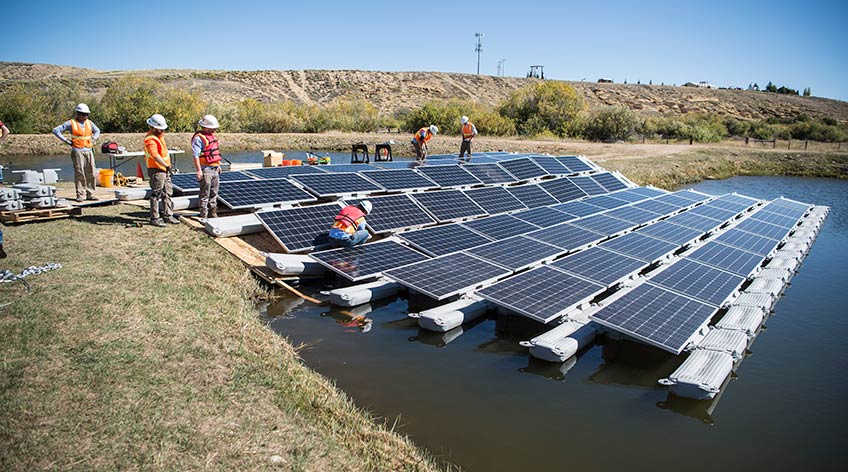From pv magazine USA
Floating photovoltaics (FPV), or “floatovoltaics,” are expected to establish a new global market by 2026, said Global Industry Analysts (GIA). It has projected 4.8 GW of deployment by that year.
FPV typically features solar panels mounted on a floating structure over a lake or reservoir, often with embedded trackers. It removes the added costs of purchasing or leasing expensive land areas. It also frees up more land area for other uses. And, water bodies are often government-owned, which is a feature that makes permitting easier to obtain, said GIA.
Generally, 1MW of FPV plant covers water bodies of about 17 to 25 acres and can generate electricity of 1,500MWh, said GIA
Popular content
While FPV projects often don’t reach the same level power output of ground mounts, they serve land-restricted areas. The systems can offer environmental benefits like managing algal growth and reducing evaporation. Water offers system benefits like cooling the panels, which can reduce degradation and lower maintenance costs, said the report.
The market is currently about 1.6 GW globally, and GIA predicts it will move at a compounded annual growth rate (CAGR) of 33.7% by 2026, reaching 4.8 GW. The Asia-Pacific region is expected to be the largest market share at around 60%, with China the fastest growing market with a CAGR of 59.4%. FPV’s cost is much higher that that of stationary solar panels, which is the key obstacle to its growth, said GIA.
GIA said the United States has more than 24,000 man-made water bodies that are anticipated to be useful in FPV development. Human-made water bodies are preferable for their ability to be managed, and most are located near existing infrastructure and roads.
This content is protected by copyright and may not be reused. If you want to cooperate with us and would like to reuse some of our content, please contact: editors@pv-magazine.com.



These FPV’s will surely help in the management of water hyacinth plants here in South Africa. These plants are taking over our rivers.
How does this effect aquatic wildlife in these bodies of
water